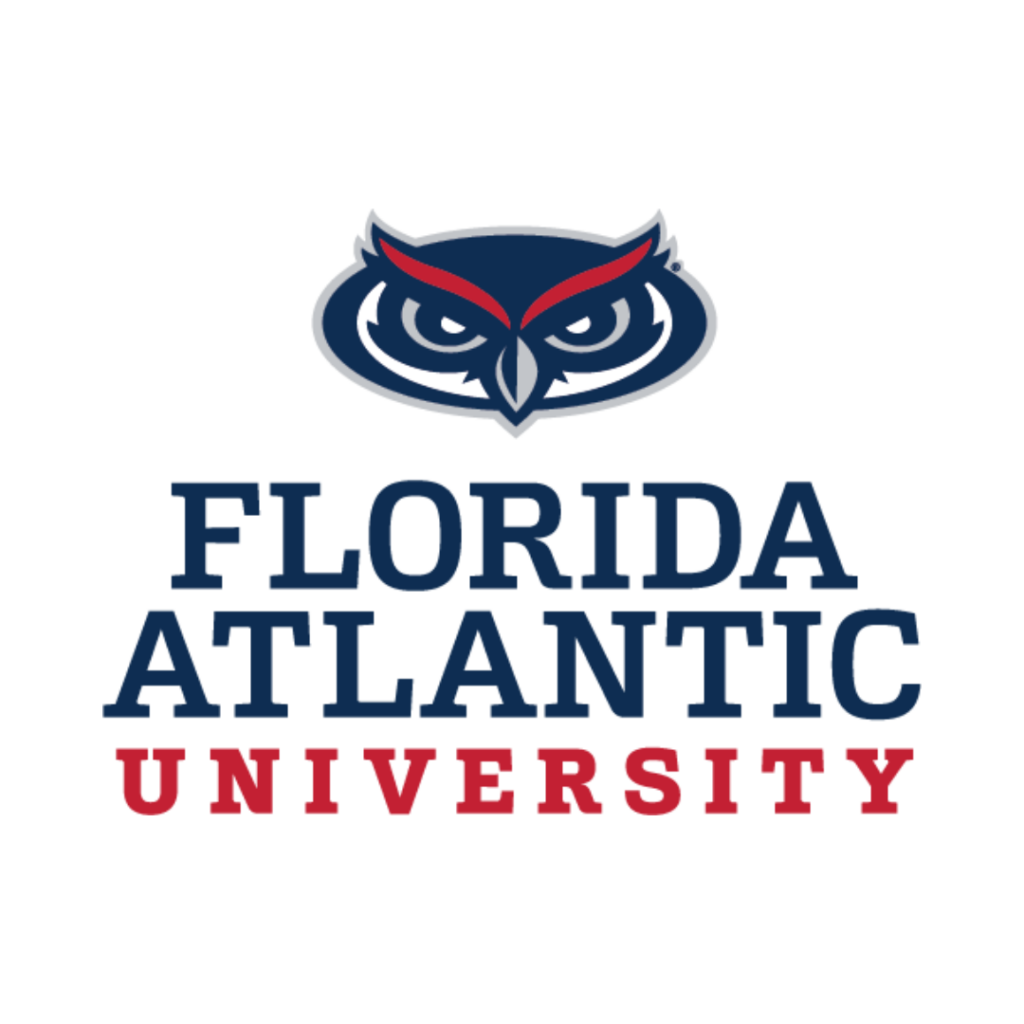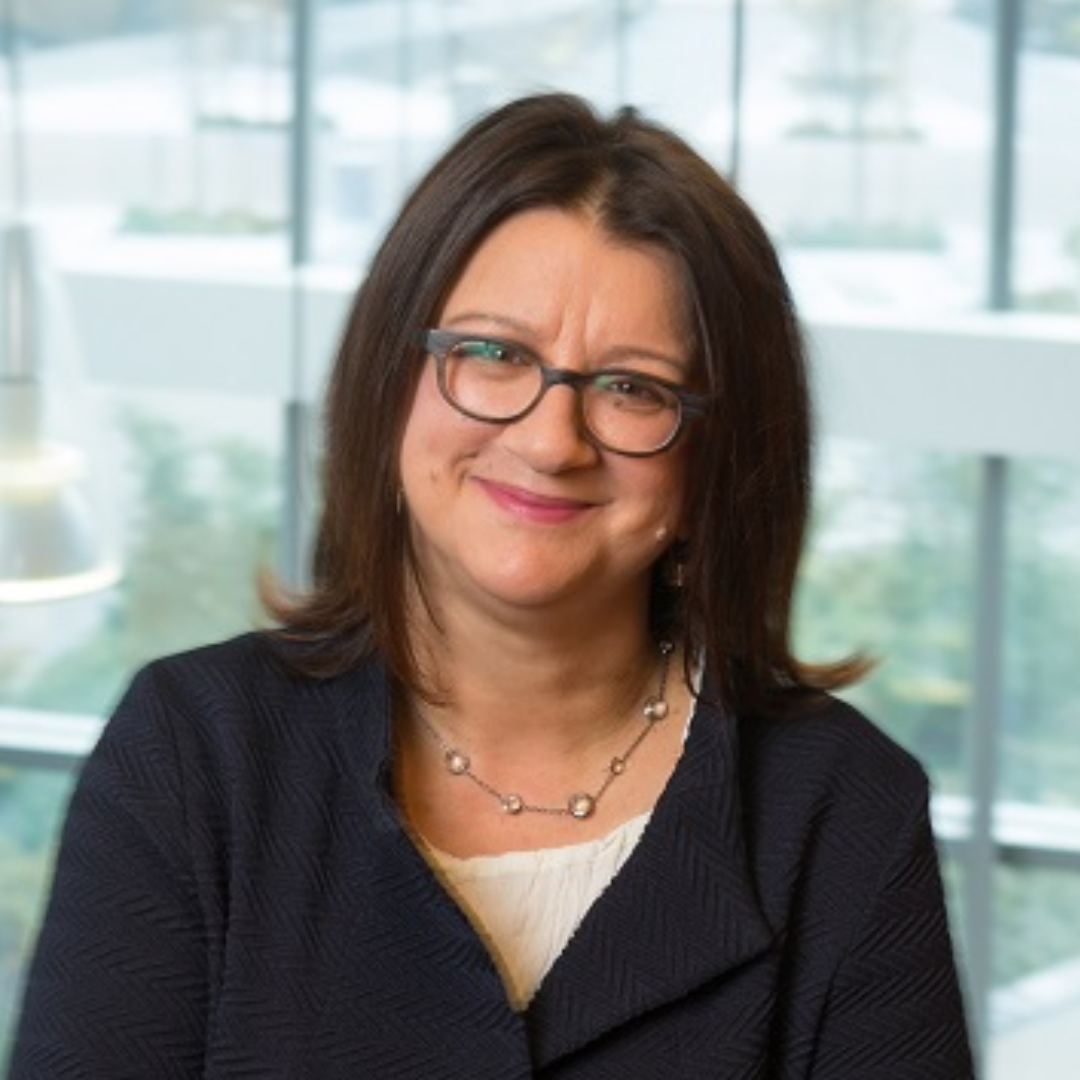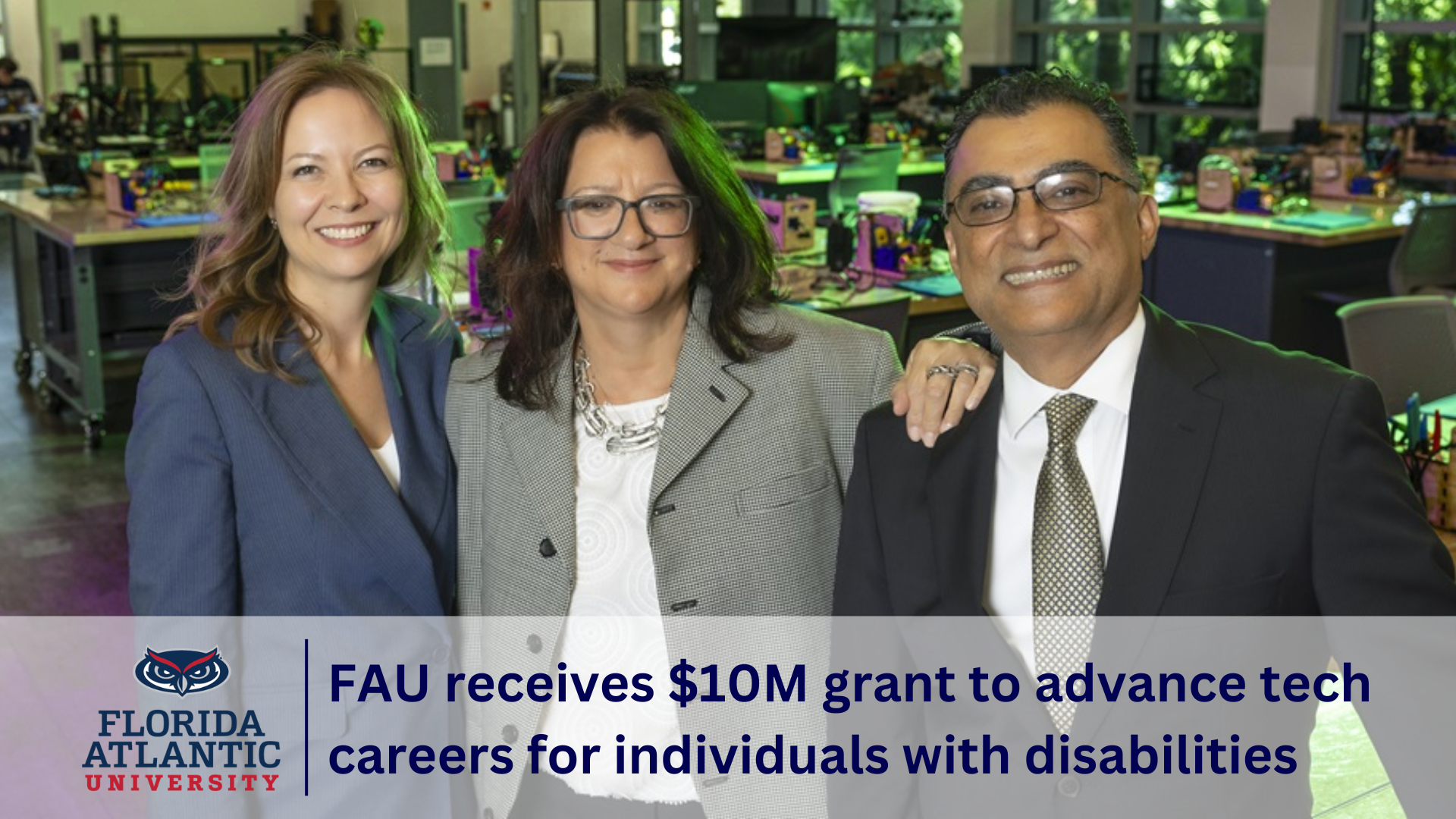 Florida Atlantic University was awarded at $9.96 million grant to advocate for career technology career opportunities for individuals with disabilities through FAU’s ACCESS-Technology program. Almost 42% of people with disabilities are unemployed – FAU is embarking on a mission to change that.
Florida Atlantic University was awarded at $9.96 million grant to advocate for career technology career opportunities for individuals with disabilities through FAU’s ACCESS-Technology program. Almost 42% of people with disabilities are unemployed – FAU is embarking on a mission to change that.The U.S. Department of Education’s Office of Special Education and Rehabilitative Services has awarded the College of Education and College of Engineering and Computer Science the grant funds for a joint project called Advancing Career Choices for Employment Success in Technology (ACCESS-Technology). The project will develop workforce training programs that will prepare people with disabilities for high-demand technology jobs.
The ACCESS-Technology project will provide specialized training and certification in critical fields such as cybersecurity, cloud computing solutions, and 3D printing to youths and adults with disabilities nationwide. Participants will receive career counseling, work-readiness skills training, and tailored support to enter high-quality technology sectors. This funding is a significant step toward promoting inclusivity and opportunity in the South Florida technology community and larger technology industry as a whole, ultimately positioning the program as a model for similar initiatives across the country.

Ayse Torres, Ph.D, Principal Investigator and Associate Professor in the Department of Counselor Education
“ACCESS-Technology is a groundbreaking initiative that aims to transform the lives of people with disabilities by providing them with tailored training and certifications in high-demand technology fields,” said Ayse Torres, Ph.D., principal investigator and an associate professor in the Department of Counselor Education within FAU’s College of Education. “By bridging the gap between disability and technology careers, we are not only opening doors to competitive integrated employment but also fostering a more inclusive and diverse workforce that will drive innovation in the 21st century.”
“Our goal is to use tech-driven education to enhance and complement learning and training in engineering fields among people with any form of disability,” said Javad Hashemi, Ph.D., co-principal investigator, inaugural chair and professor of the Department of Biomedical Engineering, and associate dean for research in the College of Engineering and Computer Science. “This exciting project is the keystone in a series of initiatives that make FAU a leader in technology-centered education and workforce development.”

Stella Batalama, Ph.D., Co-principal investigator and Dean of the College of Engineering and Computer Science.
Participants will also benefit from paid internships with leading technology companies, providing both theoretical knowledge and invaluable hands-on experience. “By partnering with leading tech firms, we’re providing not just education but also real-world skills that are crucial for success in the industry,” said Stella Batalama, Ph.D., co-principal investigator and dean of the College of Engineering and Computer Science.
The program’s comprehensive design includes an advisory committee comprising people with disabilities, agency managers, tech experts, community leaders, and educators. This diverse coalition will help guide the project, ensuring it meets the unique needs of participants and supports the broader mission of creating an inclusive and diverse technology workforce.
“By combining our expertise, we are not only creating innovative solutions for people with disabilities entering the workforce but also opening up exciting new avenues for our faculty to conduct pioneering research that addresses complex societal challenges,” said Stephen Silverman, Ed.D., dean of FAU’s College of Education.
Encouragingly, U.S. companies are increasingly recognizing the benefits of disability inclusion. A 2023 Accenture study revealed that companies excelling in disability inclusion see substantial performance gains, including 1.6 times more revenue, 2.6 times more net income, and double the economic profit compared to their peers. These companies also outperform industry peers in productivity by 25%. This evidence underscores that embracing disability inclusion not only fulfills a social responsibility but also enhances business performance.
Over the course of its five-year timeline, the ACCESS-Technology project aims to recruit 240 participants, with 80% anticipated to complete their certifications. Half of these participants will secure paid internships, and 50% of certificate earners are expected to gain employment, while 25% may transition to further education in technology fields.

